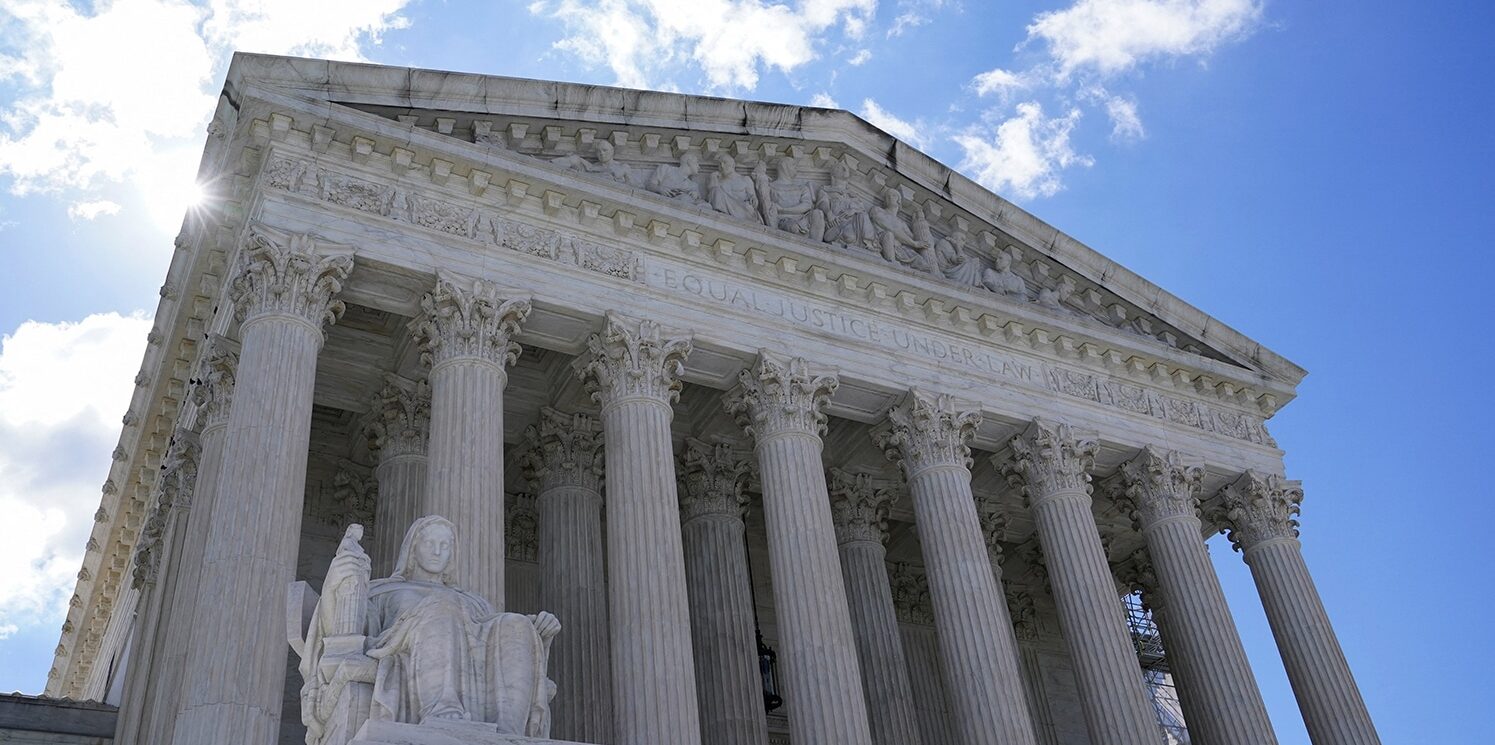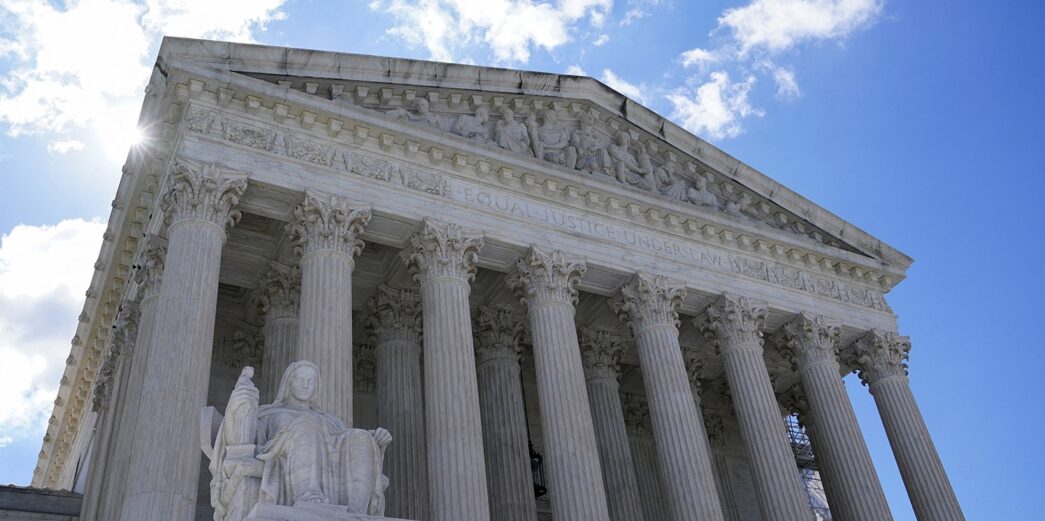Several years ago, in the wake of the June 26, 2015, U.S. Supreme Court decision Obergefell v. Hodges, I lamented to a friend that the culture wars in the United States were over, and we lost. Writing for a 5-4 majority, Justice Anthony Kennedy (im)morally redefined marriage and prohibited citizens of the 50 states from dissenting from that redefinition. The Court did not expand “marriage equality,” as its defenders are fond of saying, as though the Court merely tinkered with the edges. Rather, Kennedy and four of his colleagues said that the Catholic Christian understanding of marriage between one man and one woman is morally evil and legally illicit. “Until the mid-20th century, same-sex intimacy long had been condemned as immoral by the state itself in most Western nations, a belief often embodied in the criminal law,” Kennedy wrote. Five unelected lawyers changed that at the stroke of the proverbial pen.
Moreover, Kennedy expressly — even mockingly — declared that the question is not open to the democratic process. “It is of no moment whether advocates of same-sex marriage now enjoy or lack momentum in the democratic process,” Kennedy asserted. That’s because, by an act of sheer political ukase, the Court answered the question for itself and imposed it upon the entire nation.
For many years, my contention that Obergefell signaled defeat in the culture wars has been confirmed by setbacks related to gender identity, religious liberty, rights of conscience, abortion availability (even after the Dobbs decision), in vitro fertilization, surrogacy and other social issues. Cultural drift had become a landslide, with nothing to hold it back.
But it may be, as Nobel-Prize-winning poet Bob Dylan famously wrote, “the times they are a-changin’.” Three recent cases by that same Supreme Court give hope that the moral, cultural and legal errors in the years after Obergefell might be slowing if not in some cases even reversing. I have already written about the first of the three cases, United States v. Skrmetti, which upheld the State of Tennessee’s right to prohibit so-called “gender affirming” care for minors. The case protects approximately 25 states with similar laws and paves the way for others to protect children from permanent, devasting injuries caused by gender ideology. After Skrmetti, SCOTUS rendered two other decisions that give further hope to moral and legal sanity.
Defunding abortion mills
In Medina v. Planned Parenthood South Atlantic, the court ruled that neither Planned Parenthood nor individual citizens may sue the State of South Carolina over its decision to ban the use of Medicaid to pay for abortions. The federal Medicaid Act requires states to ensure that recipients may obtain reimbursable care from “any qualified provider.” The citizens of the state of South Carolina determined that Planned Parenthood and other abortion providers are not “qualified providers” and has thus prohibited them from receiving Medicaid reimbursement.
Planned Parenthood and an individual client filed a lawsuit against the state. On June 26, SCOTUS dismissed the lawsuit on the grounds that the Medicaid Act does not create a private cause of action for its enforcement. In other words, only Congress has the authority to set the conditions for receipt of Medicaid funding, and only Congress may enforce the Medicaid Act against the States. The Court did not assert an agreement one way or the other with South Carolina’s decision. It only ruled that neither individual plaintiffs nor Planned Parenthood are authorized to challenge. While turning on a procedural point, the effect of Medina is that South Carolina and other states are free to decide for themselves that abortion mills are not “qualified providers” of health care.
Protecting children from transgender ideology
In the last day of its regular session, in Mahmoud v. Taylor, SCOTUS rendered a decision related to transgender ideology, this time protecting elementary school children from indoctrination, recruiting and grooming through the English curriculum. The school district for Montgomery County, Maryland, has mandated the use of primary school readers whose purpose is less to teach children to read as it is to impose noxious transgender ideology on them. The books have such titles as “Pride Puppy,” “Intersection Allies,” “Born Ready: The Story of a Boy Named Penelope.” The school district originally permitted parents to opt their children out of classes where these books were used. But when too many parents were opting out, the school district rescinded the policy, and began to use the books without notice to parents and denied their right to opt out if they did become aware of their use.
Three sets of parents (Muslim, Catholic and Eastern Orthodox) sued, alleging infringement of their right to religious freedom because the books teach an ideology that is contrary to their respective faiths. They contended that they were forced to choose between the benefit of public education (for which they paid through tax dollars) or the free exercise of their religious faith. This placed an excessive burden on their right to religious exercise, the parents argued, in violation of the First Amendment. This point was drilled home in oral argument, when Justice Jackson made a “let them eat cake” type of comment. Saying the quiet part out loud, she callously asserted that the parents could send their children to religious schools if they aren’t happy. This, of course, would have placed a burden on their religious liberty that is not placed on parents who do not object.
The Supreme Court agreed with the plaintiff parents. By a 6-3 margin the court ruled that Montgomery County’s imposition of transgender ideology without the ability of parents to opt out is most likely a violation of the First Amendment. Writing for the majority, Justice Samuel Alito said that the parents are likely to succeed on the substantive merits of the case, and he therefore issued a preliminary injunction in their favor. “A government burdens the religious exercise of parents when it requires them to submit their children to instruction that poses a very real threat of undermining religious beliefs and practices that the parents wish to instill,” wrote Alito. “And a government cannot condition the benefit of a free public education on parents’ acceptance of such instruction.” Thus, the case goes back to the trial court for a decision on the merits. Given the Court’s decision, it is highly likely that the parents will prevail.
It is far too early to conclude that reason and right have again prevailed in the culture wars. But these significant cases, as well as other social changes, might be glimmers of hope that the wars are not quite over. To be sure, there are other battles to be fought. But unlike a mere two or three years ago, there are growing signs of optimism that these small victories may portend larger triumphs ahead. Recent reverses in the cultural and legal decay give hope for the restoration of sanity in law and policy.








